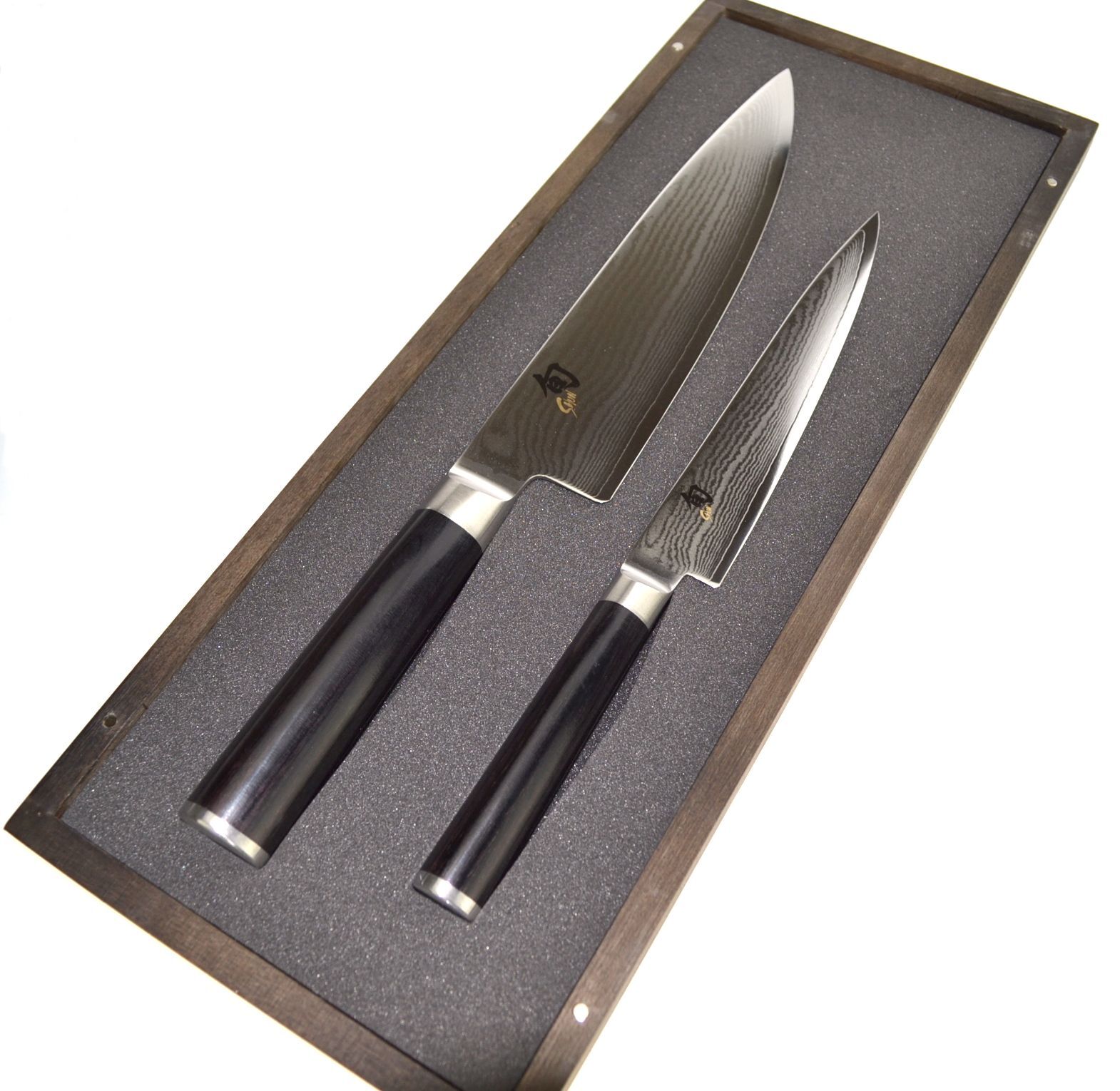

In addition, their blades don't collect food particles as easily. Shun knives are made from a single piece of metal with no spaces between the handle and blade, which makes them very easy to clean. Paring knife with plastic handle, both brands provide extremely sharp blades that are easy to handle. Some users find them too thin, but most agree that the quality outweighs any potential discomfort.

Their handles are simple yet ergonomic and they offer a comfortable grip. Shun's handles tend to be made out of lightweight wood or polypropylene (a type of sturdy plastic). Henckels tends to have a more comfortable handle than Shun knives, especially in its forged knives, which are crafted with ergonomically designed handles that feel good in the hand and provide extra durability. That doesn't mean their blades don't cut well but if you prefer knives that can cut very thin slices of food, then Shun is the better choice. Henckels makes good knives, but their blades are not necessarily as sharp as Shun knives. The Shun brand is known for its exceptionally sharp blades which can usually be used right out of the box without any additional honing or sharpening required. However, that does not mean all knives are equally sharp. 04) SharpnessĪll knives are sharp enough to cut through various types of food. This results in a blade that is sharper and offers better cutting performance for certain tasks. Shun knives, on the other hand, have a single-beveled edge.

Henckel German Knife Company has a more traditional double-beveled edge these bevels are on both sides of the blade, which is typical for a Japanese knife as well. The geometry of a blade refers to the shape and thickness of the edge and how those characteristics affect its strength, durability, sharpness, and performance. This better ensures the sharpness and overall durability of the knives. Shun knives are forged from a single piece of hard, high-carbon steel that is "cloaked" with lighter stainless steel material. Henckels knives are typically constructed from stamped blades, most often of a stainless steel alloy. On the other hand, if you don't mind having to take a bit more care in how you're handling your knives and want lighter, thinner blades that slice well and don't require frequent sharpening, Shun is the better choice. If you need a knife with an edge that will resist chipping and hold its sharpness over time, Henckels is the better choice. Henckel knives are best suited for cutting and chopping for this reason, they tend to be heavier than Shun knives.


 0 kommentar(er)
0 kommentar(er)
